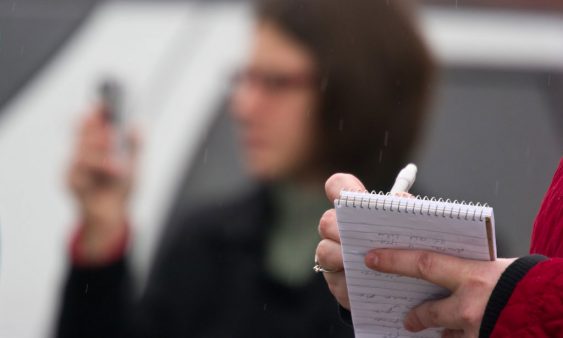News Journalism: Major Project advice
11 August 2022
First of all let me congratulate you, this year will have been hard and you have made it to the final hurdle. This article will give you a bit of advice, and things to think about before you start your Major Project (Dissertation).
Around March you should start thinking about what you want to write about. Be aware this is likely to change once you get enough time to fully sit with the idea. For me I had decided I was going to do an environmental project based on environmental justice and access to green space. However, during my work experience I was speaking to the editor and she asked about my idea. After telling her and seeing how I lacked excitement for the concept, she told me to rethink. Though she was not a lecturer, and thus I could have stuck with the idea had I wished to, I realised that if I did not like the idea at this stage then I would hate it by the time I was working on it every day. Another aspect to that idea was that it was Cardiff based, which I would not be during the summer as I would be going home to Cornwall.
- THINK EARLY WHAT YOU ARE PASSIONATE ABOUT.
My advice for you is to think early about what you are interested in, get the idea consolidated and clear and decide if you are passionate about the subject. If not, then go back to the drawing board. This may mean mood boarding articles you’ve really enjoyed writing or reading, who did you enjoy speaking to the most. Look out for what your passions are, sometimes they can surprise you. For example when I was on work experience at The National Wales, I was encouraged to write about Cornwall which awoke a passion for my home duchy that I did not realise was there. That week I was writing about second homes and holiday lets and spoke to some really interesting people. I determined that I was going to do my project on that instead.
- FEELING OVERWHELMED?
When you finally finish all your exams and are expected to just start writing your project, it can feel very overwhelming. The first thing you need to do is clarify exactly what you will be writing about and if possible, exactly what the articles making up your word count will be. This takes extensive research around the topic, and be warned, realistically you will have to do research that ends up not being used – but you can only get to the point of deciding what is relevant after you’ve done the research.
- INTERVIEW STAGE
Once you know what you are writing about, get interviewing.
- Do your research before you interview. I know this is obvious to you by now but it can be tempting when you think you know your subject inside and out, and you have back to back interviews to just jump into it. Think about what you are going to ask, and if there are difficult questions think about the tone and the phrasing of them so you don’t get rebuffed.
- Be aware that at the end of your project you have to include an appendix with the transcription of any sections you quoted from. My advice would be to use Otter.ai, pay for a month which gives you unlimited imports and the job is done for you. I always got anxious and recorded it on my phone and imported it, I hated the idea that Otter.ai may break during the interview and I would lose everything. You only have to include the transcriptions of the sections you quote from so don’t go back and correct whole hour long interviews (otter.ai sometimes misunderstands words so you will need to correct it.)
- Do your interviews all in one go, don’t try and write anything up until you have finished your interview stage.
- Take note of what people say in interviews and use it to make questions for upcoming interviewees. This means you will create linking material that allows for a good article, rather than trying to force random things people have said by chance together.
- BIBLIOGRAPHY – DO AS YOU GO
Honestly you will have forgotten what you used by the time you come to do the bibliography. Even if you just make a document copy and pasting the link to the page it will help you later.
- BE AWARE THAT YOUR ARTICLES MAY CHANGE
Do not stick to an angle if you think there is a better one that you hadn’t thought of before you began interviewing. I found that mine all changed due to interesting things being said and too many words. It is important to be able to be flexible. Remember this is your project.
- JOBS
Lots of people get jobs before they finish their project. Do what is best for you. Sometimes you can extend the deadline for a month, or up to a year. But think about going home everyday after a long day at work and having to still do uni work. Personally I did not think my mental health would be able to cope with the stress of both and so I decided to turn down a job and stay at home to complete the project. I am potentially finished two weeks early which means I now get a bit of a holiday. Whereas those who have started jobs are being paid, you have to pick what is best for you. Some of those who got jobs managed to get their project done by the start of July when they began their job, they just powered through it so remember that is also an option.